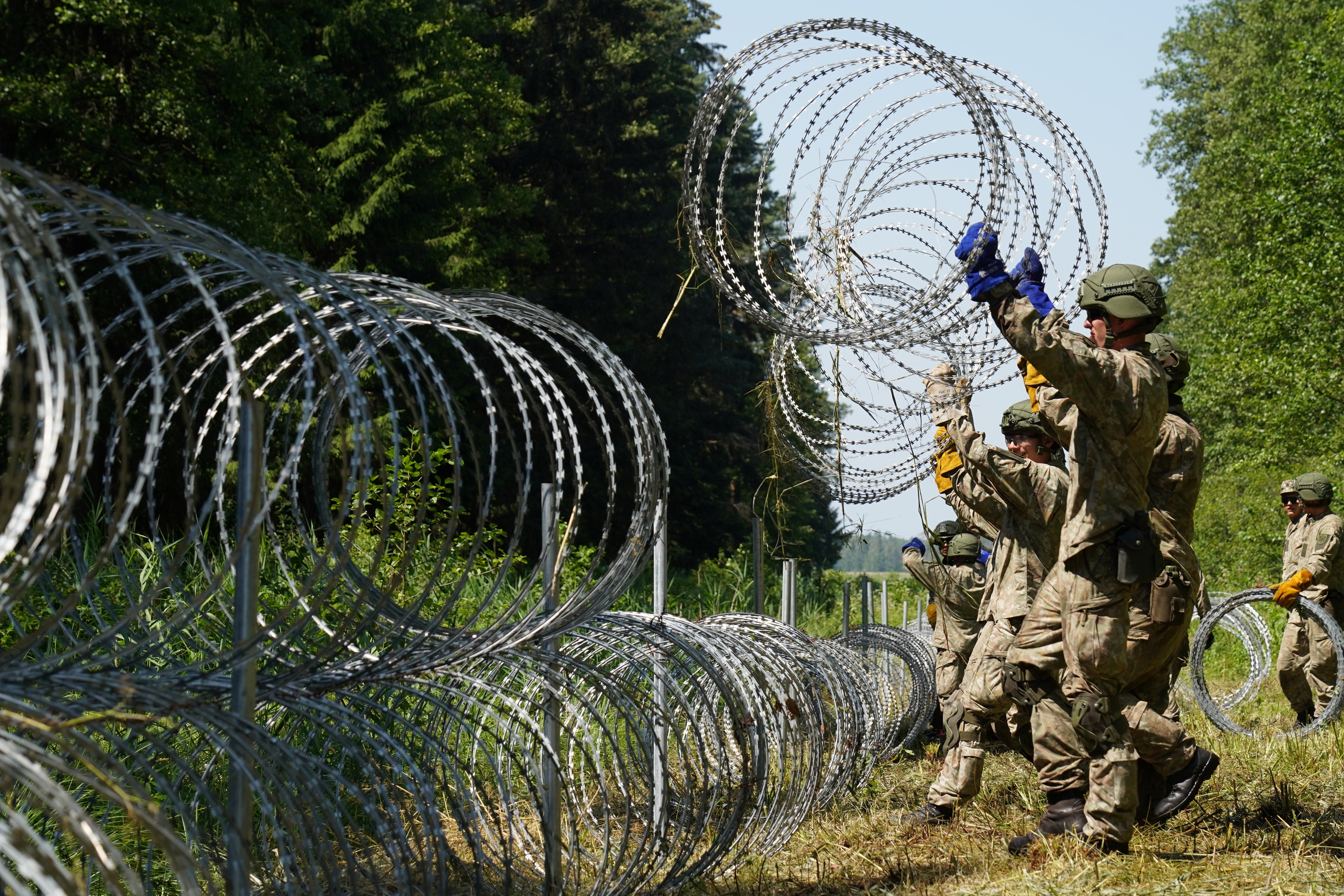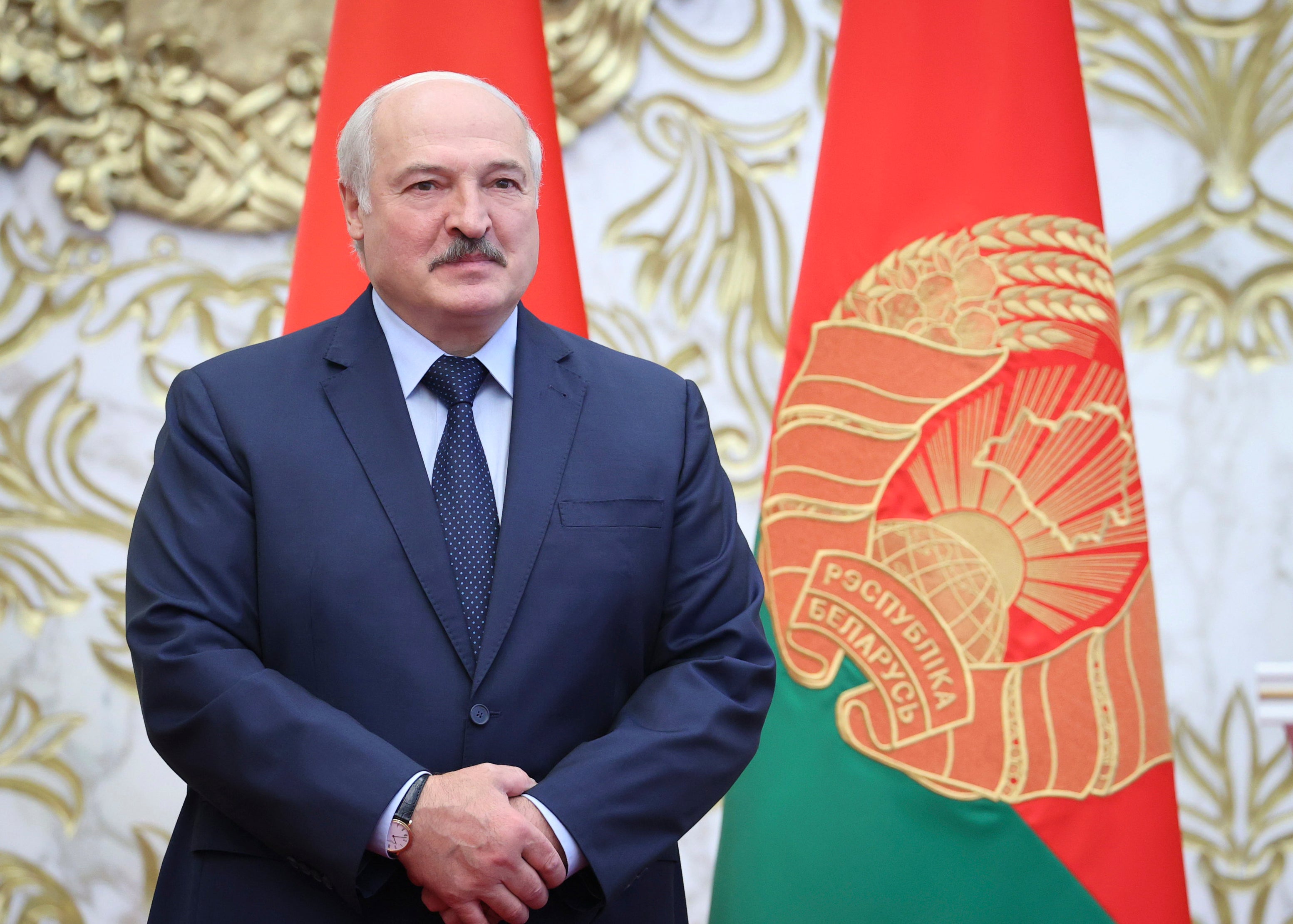Lithuania builds border wall as Belarus autocrat Lukashenko accused of trying to stoke EU migrant crisis
The appearance of migrants at Lithuania’s door was ‘no accident’ said the country’s PM

Your support helps us to tell the story
From reproductive rights to climate change to Big Tech, The Independent is on the ground when the story is developing. Whether it's investigating the financials of Elon Musk's pro-Trump PAC or producing our latest documentary, 'The A Word', which shines a light on the American women fighting for reproductive rights, we know how important it is to parse out the facts from the messaging.
At such a critical moment in US history, we need reporters on the ground. Your donation allows us to keep sending journalists to speak to both sides of the story.
The Independent is trusted by Americans across the entire political spectrum. And unlike many other quality news outlets, we choose not to lock Americans out of our reporting and analysis with paywalls. We believe quality journalism should be available to everyone, paid for by those who can afford it.
Your support makes all the difference.Lithuania has started work on a new border fence to halt illegal migration from next-door Belarus — with officials accusing the country’s erratic leader Alexander Lukashenko of deliberately trying to stoke a migrant crisis on the EU’s border.
The initial stage of construction will add less than half a mile to the 48 miles already in place, but officials say they plan to extend the physical barrier to cover other sections of the 421 mile border between the neighbouring former Soviet states. Much of the frontier runs through difficult to patrol woodlands, with CCTV covering no more than 40 per cent of the line.
Lithuania announced a state of emergency in early July following unprecedented inflows of migrants from Belarus. At that point, daily arrests had topped 150, more than twice the total figure for 2020.
The Baltic state has vowed to send as many back as it can. In the meantime, more than a thousand migrants are being housed in hangars and tent cities that will become defunct as soon as colder weather arrives.
Border guards say that a total of 1,548 illegal migrants were detained in the year to July. That is 18 times the equivalent number for the previous year. Most of the arrivals are Iraqi Kurds, with a smaller number coming from Iran, Syria, Africa, Belarus and Russia. A large number arrive without documents.
The prime minister, Ingrida Simonyte, said the appearance of migrants at Lithuania’s door was “no accident”, and has accused Belarus’s president of lashing out in response to western sanctions by flying in migrants to get them into the EU.
“We consider the process to be hybrid aggression directed not so much against Lithuania, but against the EU,” she said.
Her interior minister, Agne Bilotaite, meanwhile suggested it looked like an idiosyncratic attempt by Minsk “to start a dialogue” with the West.
Alexander Lukashenko has made little secret of a policy to remove border controls. In May, facing a backlash from the state hijacking of Ryanair flight 4978, he said Belarus would no longer hinder the flow of illegal migrants into Europe.
In June, he made his position even clearer: “You wage a hybrid war against us and ask us to protect you as before? Well, before we stopped drugs and migrants — now you will take and catch them yourself.”
Western officials believe Mr Lukashenko’s policy goes beyond passivity.
Unconfirmed reports suggest the vast majority of migrants fly into Belarus on official invitations from state tourism firms connected to the presidential administration. They are then housed in hotels near the Lithuanian border, and delivered, with the help of organised crime, to poorly guarded parts of the frontier.
There is no evidence that the migrants themselves know the full nature of these schemes.
A Telegram account connected with the Belarusian opposition claims to have spoken to an eyewitness in the Voranava district of western Belarus — suggesting migrants were being bussed in and out of border territories near to the villages of Nacha and Belyuntsy. These territories were previously high-security regions, with a system of permits in operation for local residents.
The weaponisation of migrants appears to be the latest front in long-running tensions between Belarus and its western neighbour. In the crackdown since last August’s disputed elections, Lithuania has become the de facto home of the Belarusian opposition. Svetlana Tikhanovskaya, the woman who almost certainly won those elections with a landslide, is the most prominent of these new exiles.

On Friday, the parliamentary chairs of a dozen foreign affairs committees around the world signed an open letter condemning what they called “politically-motivated trafficking” of people.
“Using the most vulnerable as leverage in a political dispute is shameful and draws comparison with the act of piracy we saw in May,” the declaration reads.
Pavlo Latushko, Mr Lukashenko’s former culture minister who now heads the Belarusian government in exile from Lithuania, said people trafficking was not the only thing the West should be concerned about.
“Lukashenko’s own statements suggest his next move will be organising the flow of drugs into Europe,” he told The Independent.
“But the absurd logic of the dictator doesn’t end there, and nothing should be ruled out — not even attempts to move nuclear materials into the EU.”
Join our commenting forum
Join thought-provoking conversations, follow other Independent readers and see their replies
Comments